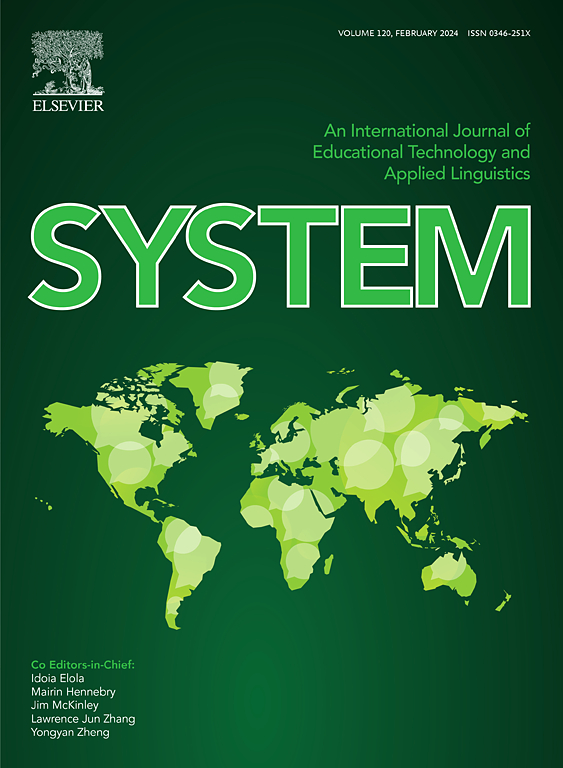单甘酯混合物对实验性感染致病性大肠杆菌的断奶猪全身和肠道免疫反应以及肠道健康的影响
IF 6.5
1区 农林科学
Q1 Agricultural and Biological Sciences
引用次数: 0
摘要
单甘油酯因其生物活性(包括抗菌特性),已成为一种很有前景的传统替代品。然而,很少有研究利用疾病挑战模型评估单甘酯混合物对断奶猪的功效及其对生产性能、免疫反应和肠道健康的影响。因此,本研究旨在调查日粮中短链脂肪酸单甘酯对实验性感染肠毒性大肠埃希氏菌 F18 的断奶猪的免疫和肠道健康的影响。与其他处理相比,补充高剂量氧化锌(ZNO)的猪具有更高的生长性能(P < 0.05),但在挑战后期间,ZNO 组和单甘油酯组的平均日采食量没有差异。ZNO 组和抗生素组的猪腹泻严重程度低于对照组(P < 0.05),但抗生素组和单甘油酯组的猪腹泻严重程度没有差异。饲喂单甘酯或 ZNO 的猪在接种后第 2 天或第 5 天的血清血红蛋白低于对照组(P < 0.05)。接种后第 5 天,ZNO 组猪的十二指肠中每个绒毛的绒毛细胞数、绒毛面积和高度以及绒毛高度与隐窝深度比(VH:CD)均高于其他处理组猪(P < 0.05)。与对照组相比,添加单甘酯、ZNO 或抗生素的猪在接种后第 5 天的回肠隐窝深度降低(P < 0.05),从而导致 VH:CD 增加(P = 0.06)。同样,在接种后第 5 天,ZNO 猪的回肠粘膜中 TNFa、IL6、IL10、IL12、IL1A、IL1B 和 PTGS2 的表达量最低(P < 0.05),而且 ZNO 和单甘酯在这些基因的表达量上没有差异。与对照组相比,补充 ZNO 和抗生素对血清中的代谢途径有显著影响,尤其是对碳水化合物和氨基酸代谢的影响,而与对照组相比,单甘酯组对血清代谢物的影响有限。结果表明,补充单甘酯混合物可缓解腹泻的严重程度,减轻肠道和全身炎症,从而增强断奶猪的抗病能力,但其效果可能无法与高剂量氧化锌相比。本文章由计算机程序翻译,如有差异,请以英文原文为准。
Effects of monoglyceride blend on systemic and intestinal immune responses, and gut health of weaned pigs experimentally infected with a pathogenic Escherichia coli
Monoglycerides have emerged as a promising alternative to conventional practices due to their biological activities, including antimicrobial properties. However, few studies have assessed the efficacy of monoglyceride blend on weaned pigs and their impacts on performance, immune response, and gut health using a disease challenge model. Therefore, this study aimed to investigate the effects of dietary monoglycerides of short- and medium-chain fatty acids on the immunity and gut health of weaned pigs experimentally infected with an enterotoxigenic Escherichia coli F18. Pigs supplemented with high-dose zinc oxide (ZNO) had greater (P < 0.05) growth performance than other treatments, but no difference was observed in average daily feed intake between ZNO and monoglycerides groups during the post-challenge period. Pigs in ZNO and antibiotic groups had lower (P < 0.05) severity of diarrhea than control, but the severity of diarrhea was not different between antibiotic and monoglycerides groups. Pigs fed with monoglycerides or ZNO had lower (P < 0.05) serum haptoglobin on d 2 or 5 post-inoculation than control. Pigs in ZNO had greater (P < 0.05) goblet cell numbers per villus, villus area and height, and villus height:crypt depth ratio (VH:CD) in duodenum on d 5 post-inoculation than pigs in other treatments. Pigs supplemented with monoglycerides, ZNO, or antibiotics had reduced (P < 0.05) ileal crypt depth compared with control on d 5 post-inoculation, contributing to the increase (P = 0.06) in VH:CD. Consistently, pigs in ZNO expressed the lowest (P < 0.05) TNFa, IL6, IL10, IL12, IL1A, IL1B, and PTGS2 in ileal mucosa on d 5 post-inoculation, and no difference was observed in the expression of those genes between ZNO and monoglycerides. Supplementation of ZNO and antibiotic had significant impacts on metabolic pathways in the serum compared with control, particularly on carbohydrate and amino acid metabolism, while limited impacts on serum metabolites were observed in monoglycerides group when compared with control. The results suggest that supplementation of monoglyceride blend may enhance disease resistance of weaned pigs by alleviating the severity of diarrhea and mitigating intestinal and systemic inflammation, although the effectiveness may not be comparable to high-dose zinc oxide.
求助全文
通过发布文献求助,成功后即可免费获取论文全文。
去求助
来源期刊

Journal of Animal Science and Biotechnology
AGRICULTURE, DAIRY & ANIMAL SCIENCE-
CiteScore
9.90
自引率
2.90%
发文量
822
审稿时长
17 weeks
期刊介绍:
Journal of Animal Science and Biotechnology is an open access, peer-reviewed journal that encompasses all aspects of animal science and biotechnology. That includes domestic animal production, animal genetics and breeding, animal reproduction and physiology, animal nutrition and biochemistry, feed processing technology and bioevaluation, animal biotechnology, and meat science.
 求助内容:
求助内容: 应助结果提醒方式:
应助结果提醒方式:


